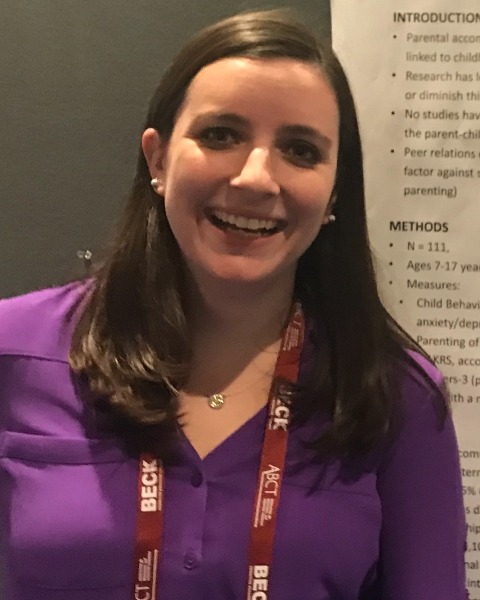Dissemination & Implementation Science
The Effect of Therapists’ Beliefs about Exposure Therapy on its Utilization: A Meta-Analysis
(PS5-C51) The Effect of Therapists’ Beliefs About Exposure Therapy on Its Utilization: A Meta-analysis

Theresa R. Gladstone, M.A.
Graduate Student
Kent State University
Cleveland, Ohio- CF
Christopher A. Flessner, Ph.D.
Associate Professor
Kent State University
Kent, Ohio
Author(s)
Co-Author(s)
Anxiety and related disorders are the most common mental health conditions. If left untreated, anxiety can lead to difficulties in a multitude of realms (e.g., familial, medical, social). Exposure therapy is the preferred method of treatment; however, most community clinicians underutilize this approach. Researchers have proposed ecological models that highlight barriers to utilization at the client (e.g., symptom severity), organizational (e.g., supervision), and therapist (e.g., negative beliefs about exposure) levels. The aim of this meta-analysis was to investigate one therapist level barrier’s relationship with exposure use. The current sample included 2548 participants across 9 studies. A random effects meta-analysis yielded a significant overall effect, with a medium to large negative correlation between negative beliefs about exposure and exposure utilization (r=-0.42, p< .001). Three moderators were examined: client age, symptom type, and therapist age. Results demonstrated that effect sizes were significantly different by client age (Q(2)=19.98, p< .001) and symptom type (Q(3)= 175.66, p< .001). This meta-analysis endorsed the strong relationship between negative beliefs about exposure and its utilization, while also suggesting that client age and symptom type may moderate this relationship. Despite the current meta-analysis’ important findings, limitations must be considered (e.g., potential publication bias and a small sample of primary studies). Future work ought to build upon this meta-analysis’ contribution to further understand therapists’ beliefs about exposure and other contributing factors.

